Sourdough Starter Super easy with no discard! A Virtual Vegan
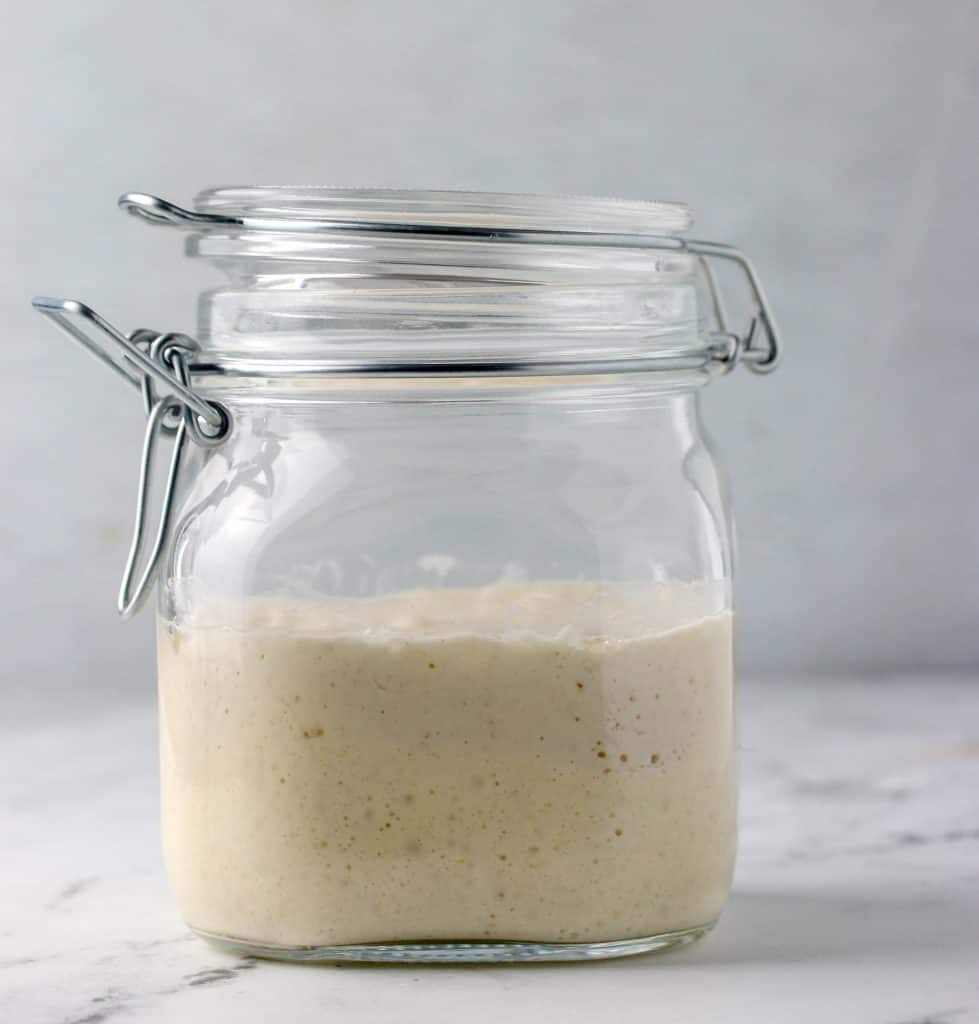
How To Feed And Maintain A Sourdough Starter Boston Girl Bakes
100g. Water. 100%. This should give you around 200g (with a little left to perpetuate your culture) of ripe starter to use twice a day. I maintain around 220g of starter each day, translating to 20g carryover ripe sourdough starter, 70g all-purpose flour, 30g whole rye flour, and 100g water. I keep my starter in a large 3/4 Liter Weck jar and.

Learn my best tips and tricks for feeding sourdough starter. These easy
100%. Ripe sourdough starter carryover. 20g. 20%. Twice a day (usually at 9:00 a.m. and 9:00 p.m.), I do the following when my starter is ripe: Discard the contents of my starter jar down to 20g (the discard can go in the compost, trash, or used in a discard recipe) To the jar, add 70g white flour, 30g whole rye flour, and 100g water.

How To Feed And Maintain A Sourdough Starter Boston Girl Bakes
The most common feeding ratio is 1:1:1 (sourdough starter: flour: water). This is also known as a 100% hydration starter. For example, let's say you have 40 g of sourdough starter in a jar. To feed it, you'll add 40 g of flour + 40 g of water. This is referred to feeding with "equal parts by weight.".
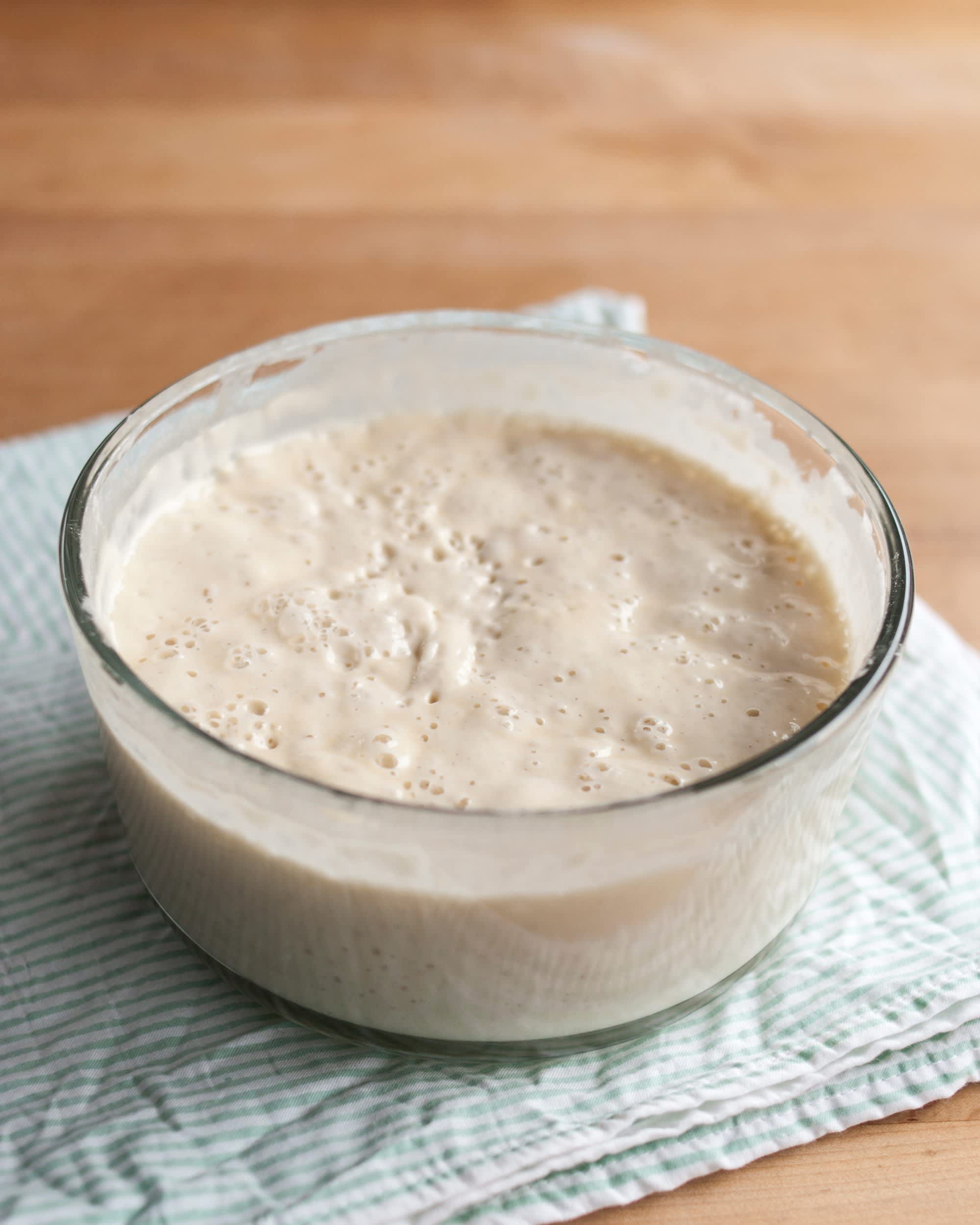
How To Make Sourdough Starter from Scratch Kitchn
Day 1: (Making the starter.) Start with 30 grams of flour and 30 grams of water, which will result in a 60 grams starter. Mix thoroughly, affix lid loosely, let sit in warm place 24 hours. Day 2: Discard half my starter so that I have 30 grams of starter. Add 30 grams of water and 30 grams of flour. Stir well.

How To Feed Sourdough Starter 10 Tips For A Healthy Starter crave the
First, pour off and discard about half of the starter. Let the remaining starter sit at room temperature for 1 hour before stirring in equal weights flour and water (by volume 1 part water to 1 1/.

Understanding Sourdough Starter feeding, ratios, leaven, when to use
Feeding Ratio . I also had to decide on a feeding ratio. Bakers use the convention X:Y:Z in reference to feeding, where X is the amount of starter, Y is the amount of flour, and Z is the amount of water. Typical ratios range from 1:1:1 all the way to 1:10:10.

Feeding your sourdough starter in 2021 Sourdough starter, Breakfast
For example, if you want to bake bread on Tuesday morning, give the starter the first feeding at 9 a.m. on Monday and give it the second feeding between 3 and 5 p.m. on Monday. Six to 8 hours.

How To Feed/Refresh Your Sourdough Starter gristandtoll
Use a kitchen scale to measure 100g (1/2 cup) of water and 100g (1 scant cup) of flour. Stir into the starter until completely mixed. Clean and Cover - use a silicone spatula to scrape down the sides of the jar and cover loosely with a lid or plastic wrap.
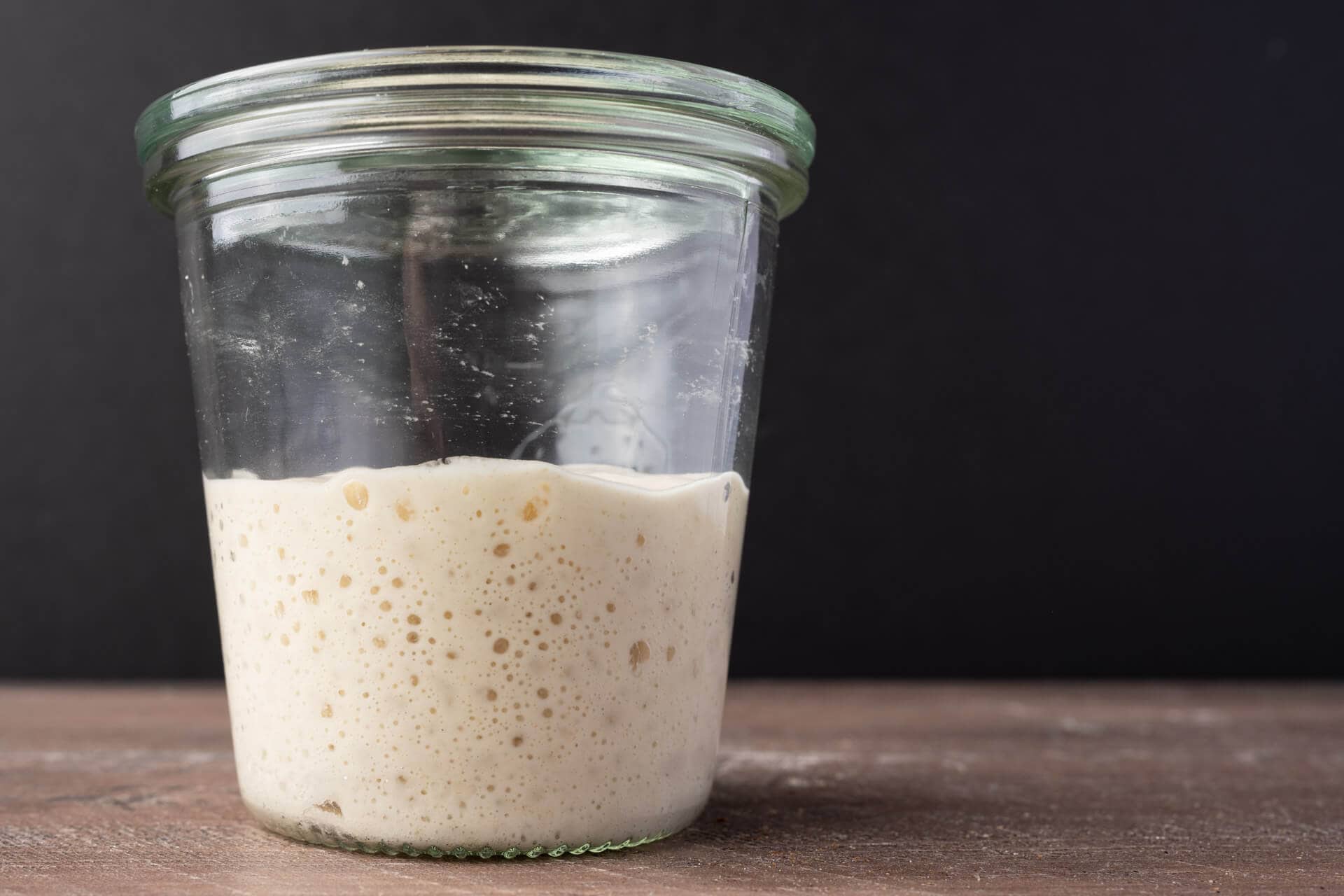
Keeping a Smaller Sourdough Starter to Reduce Waste The Perfect Loaf
Discard any remaining starter. Add a scant 1 cup (113 grams) King Arthur Unbleached All-Purpose Flour, and 1/2 cup (113 grams) water to the 113 grams starter. Mix the starter, flour, and water, cover, and let the mixture rest at room temperature for approximately 12 hours before repeating.

Does the amount of sourdough starter matter? And what happens when you
Add 1/2 cup (113g) lukewarm water (tap water is fine) and a scant 1 cup (113g) unbleached all-purpose flour. Stir until everything is well combined. Cover the bowl; it shouldn't be completely airtight but you also don't want the starter drying out, so a kitchen towel isn't suitable. Try a reusable bowl cover or plastic wrap.

How to feed a sourdough starter YouTube
If using measuring cups, combine 1 part sourdough starter, 1 part water, and a little less than 2 parts flour. For example, ¼ cup of starter, ¼ cup water, and a little less than ½ cup flour. Cover; place in a warm area, 70°-85°F, for 8-12 hours. Repeat steps 1-3 until you have enough starter for your recipe, with a little leftover.

How to feed a Sourdough Starter (The Easy Way) YouTube
Day 8, Night: Measure 8g (1/4 ounce) starter into cleaned container. Stir in 16g (1/2 ounce) flour, and 16g (1/2 ounce) water until smooth, for a feeding ratio of 1:2:2. Discard remaining starter; clean and, if desired, sterilize used container. Day 9, Morning: Measure 8g (1/4 ounce) starter into cleaned container.
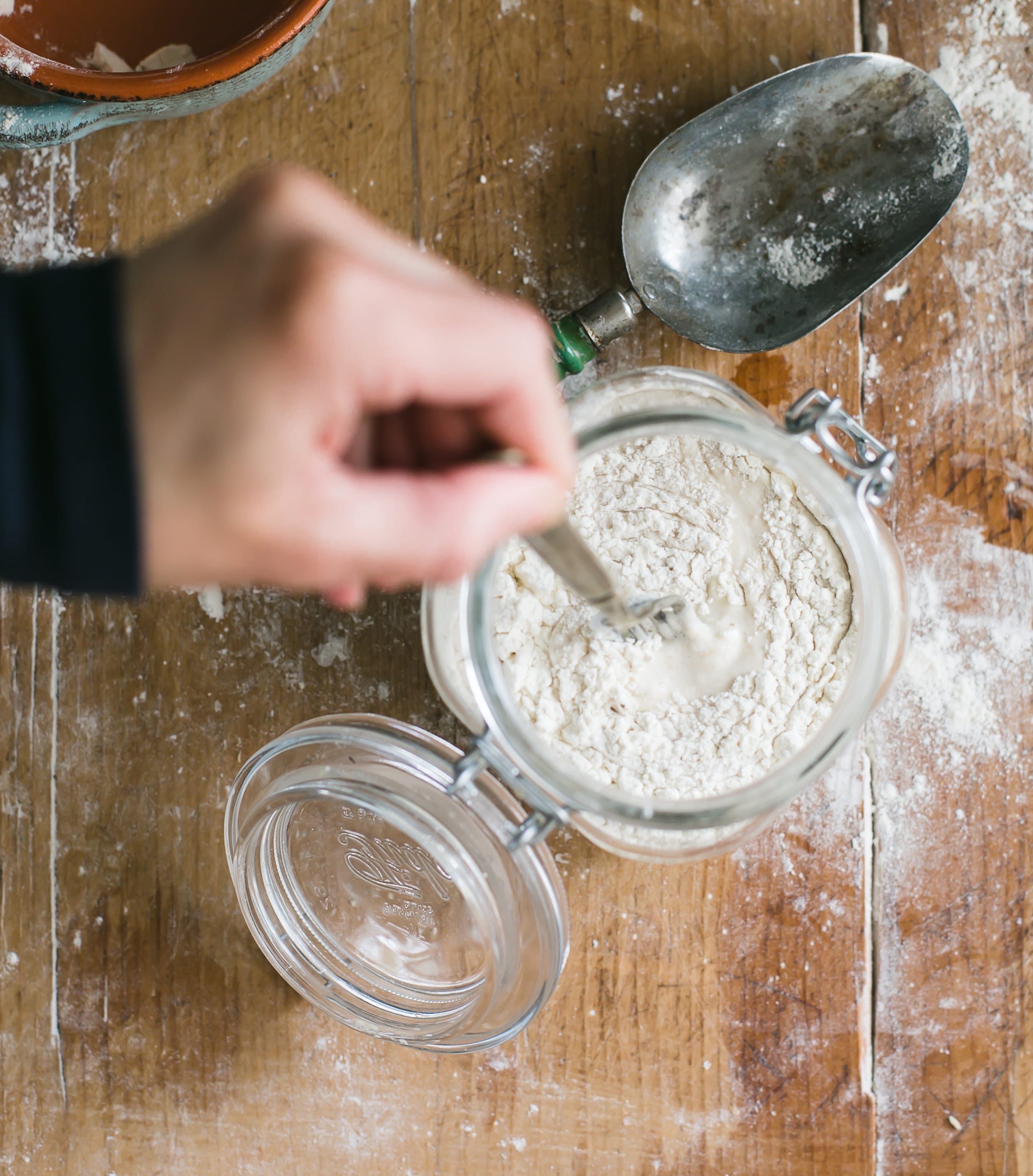
Feeding Sourdough Starter My Best Tips & Tricks The Clever Carrot
Other feeding Ratios. While 1:1:1 is the minimum feeding that is typically used, there are many other ratios that are commonly used. You might see some people use a 1:2:2 or a 1:3:3 or even a 1:4:4 or 1:5:5. Again, these ratios represent the amount of food you give the amount of starter that you keep. I typically use a 1:3:3 ratio meaning that.

The Best Flour for Sourdough Starters An Investigation in 2020
Sourdough Feeding Ratios I often get asked about the feeding ratios for my sourdough starter recipes. When I feed my starter for a specific recipe, I tend to feed my starter 1 part starter : 1 part flour : 1 part water and then leave it in a warm spot for 4 hours before using it in the recipe.

Ultimate Guide to Sourdough for Beginners Sauerteigbrot backen, Brot
Day 2 - Feed your starter 40 grams of flour and 40 grams of water. This means, adding in a fresh 40g of flour and 40g of water and mixing it really well with yesterday's mix. Day 3: Pour 40g of the starter into a fresh jar and feed it 40 grams of flour and 40 grams of water. (A ratio of 1:1:1.) Discard the rest.
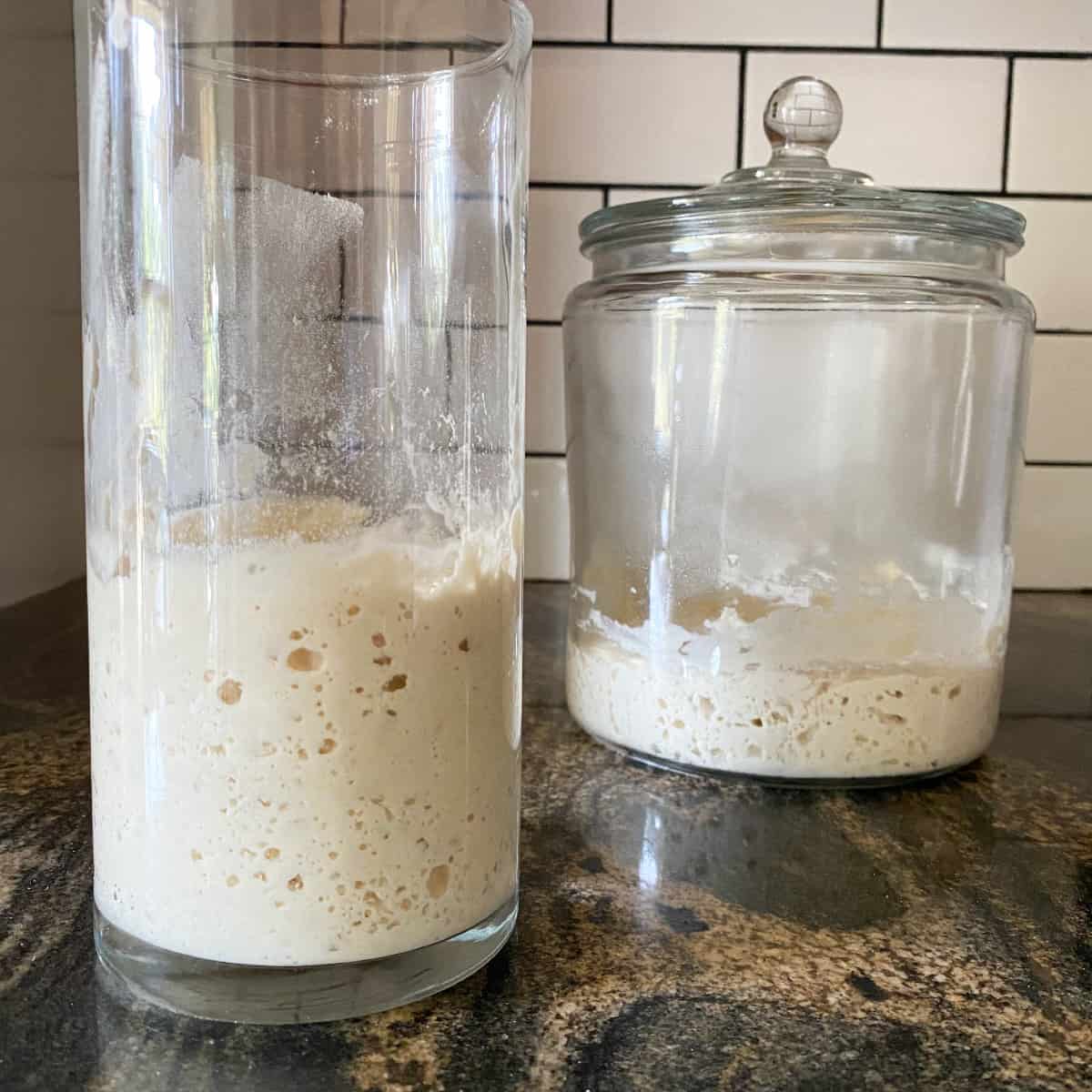
How To Feed And Maintain A Sourdough Starter [Without a Scale
Regular bakers often prefer a 1:1:1 ratio, while occasional bakers might opt for 1:2:2 or 1:3:3 to extend feeding intervals. A 1:1:1 ratio imparts a pronounced sourness while a higher feeding ratio produces a milder tang. In warmer conditions where the starter matures quickly, a 1:3:3 ratio is more appropriate. 1. Common Feeding Ratios.